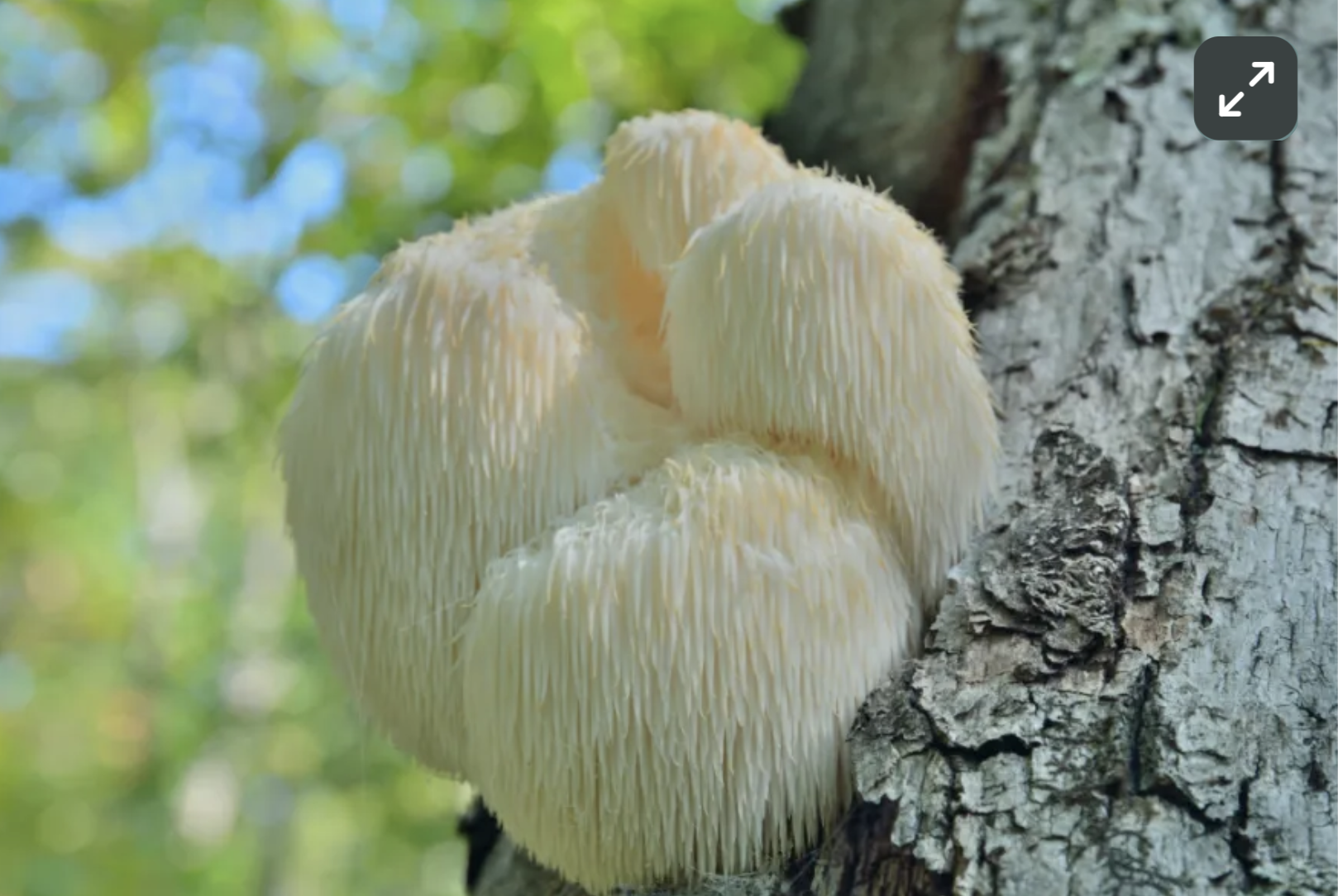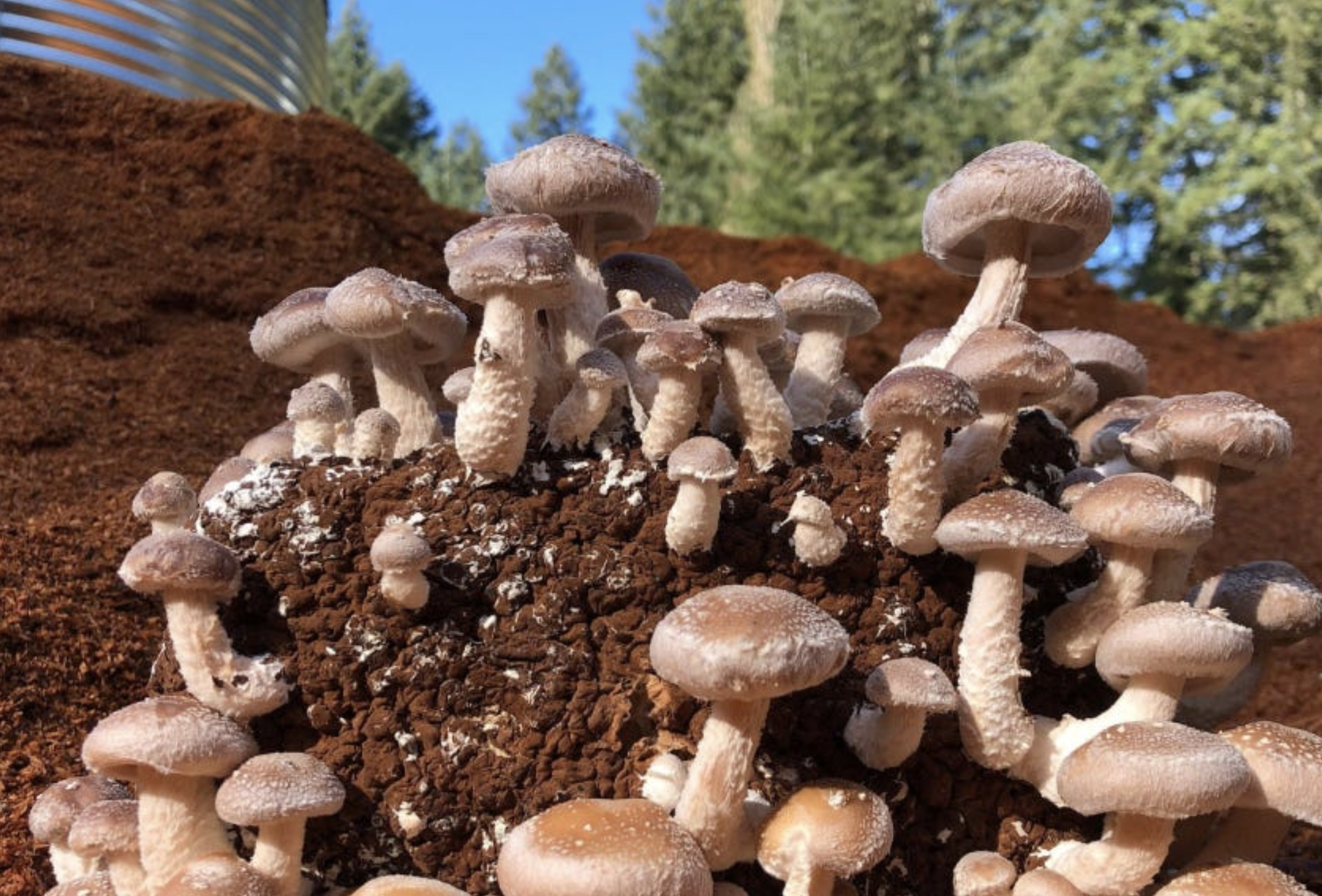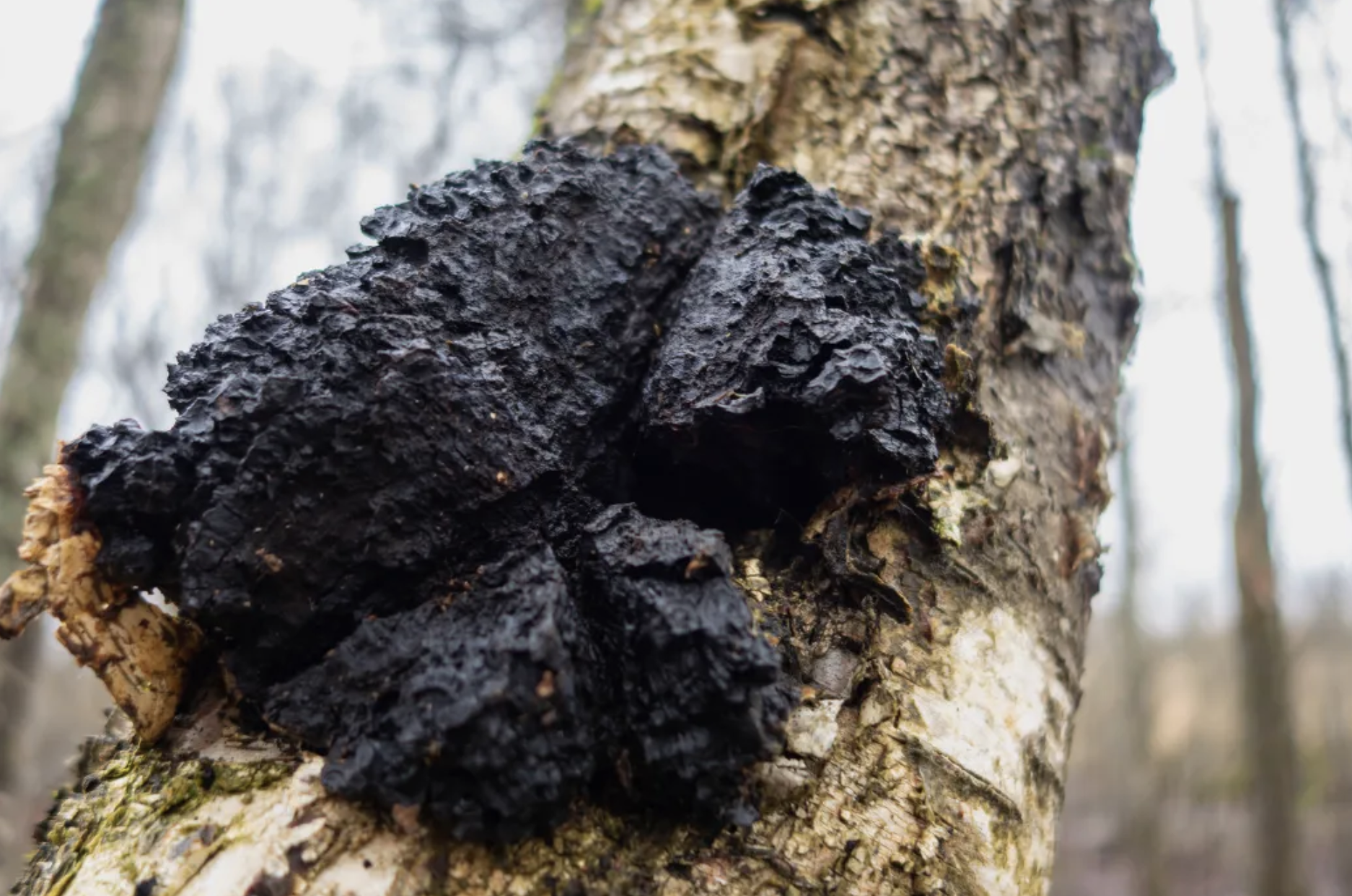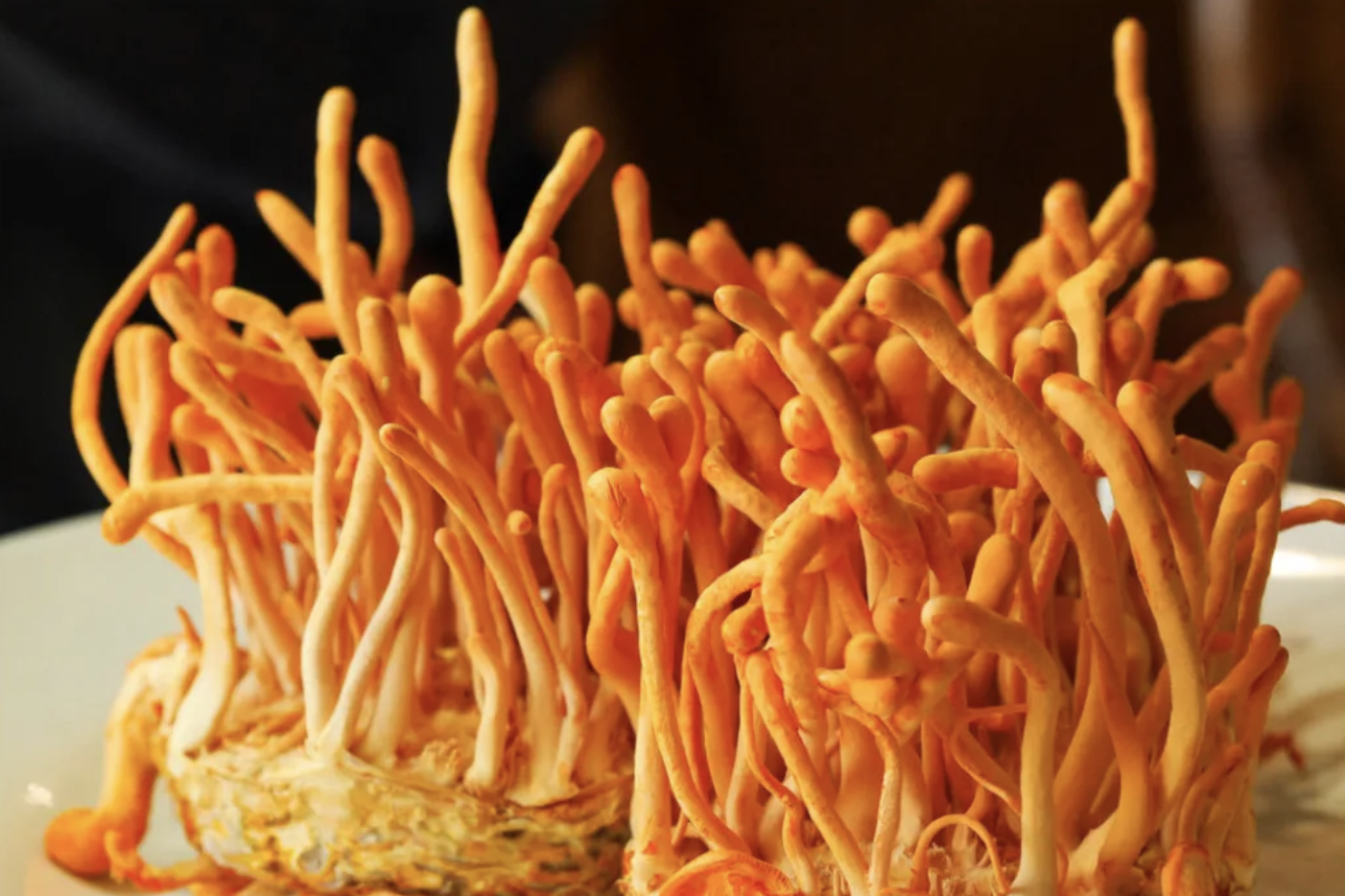Lion's mane, Reishi, Cordyceps: Evidence-based benefits of functional mushrooms for wellness and brain health.

Unlocking the Secrets of Nature’s Pharmacy
Mushrooms, those peculiar umbrella-shaped growths we often see sprouting in forests, have fascinated humans for millennia. Beyond their culinary delights and fairy-tale aesthetics, certain species of mushrooms offer unique health benefits. Welcome to the world of functional mushrooms! Today, I dive deep into some of the ones who facinating me the most: Lion's Mane, Shiitake, Reishi, and a couple of other notable varieties. Let's explore these natural wonders and the incredible benefits they offer.
What are functional mushrooms?
Functional mushrooms are a select group of fungi species renowned not just for their nutritional value, but primarily for their health-promoting properties. Unlike the common culinary mushrooms we find in our meals, functional mushrooms have been used for centuries across a wide range of cultures, each integrating them into daily life and healing practices in unique ways.
In East Asia—particularly in China, Japan, and Korea—mushrooms like Reishi, Shiitake, Maitake, and Cordyceps have long been central to Traditional Chinese Medicine, consumed in teas, soups, and tonics to support longevity, immunity, and vitality.
In Russia and Eastern Europe, wild-harvested mushrooms such as Chaga and Lion’s Mane are part of a rich folk medicine tradition, valued for their immune-boosting and adaptogenic properties.
Indigenous cultures of North America have also relied on forest mushrooms like Turkey Tail and Birch Polypore for healing and spiritual rituals.
While India’s Ayurveda has not traditionally emphasized mushrooms, Himalayan Cordyceps has been used in Tibetan-influenced regions for stamina and respiratory health. Today, these traditions are inspiring a modern revival in the West, where functional mushrooms are gaining popularity as powders, supplements, and mushroom coffees—embraced by wellness seekers, biohackers, and anyone looking to support focus, stress resilience, and immune balance naturally.
These mushrooms are great for their potential therapeutic benefits. These benefits can range from boosting the immune system and enhancing cognitive function to promoting general wellness and balance within the body. Rich in unique compounds such as polysaccharides, beta-glucans, and antioxidants, these mushrooms stand at the intersection of food and medicine, offering a natural avenue to support various aspects of our health.
1. Lion's Mane (Hericium erinaceus)
The Lion's Mane mushroom looks somewhat like a white, cascading waterfall of spines. But what's truly majestic is its medicinal profile.

Lion’s Mane (Hericium erinaceus) is a standout among functional mushrooms, not just for its striking, cascading appearance that resembles a white lion’s mane, but for its remarkable effects on the brain and nervous system.
Beyond supporting memory and mental clarity, Lion’s Mane has shown promising results in reducing symptoms of anxiety and depression, likely due to its ability to reduce inflammation in the brain and promote neuroplasticity.
Neurology: Lion’s Mane mushroom (Hericium erinaceus) is gaining attention for its remarkable neuroprotective properties, especially in the context of neurological diseases. Rich in unique compounds like hericenones and erinacines, it has been shown to stimulate Nerve Growth Factor (NGF), a vital protein that supports the growth, repair, and survival of neurons. This makes it particularly promising for conditions such as Alzheimer’s, Parkinson’s, and peripheral neuropathy, where nerve degeneration plays a central role.
Antioxidant and anti-inflammatory: benefits, helping to protect brain cells from the damage caused by chronic inflammation and oxidative stress. Some research even suggests it may support remyelination, offering hope for those with demyelinating conditions like multiple sclerosis. Early clinical studies and anecdotal reports point to improved memory, mental clarity, and mood, making Lion’s Mane a powerful natural ally for cognitive support. While not a cure, its gentle yet profound effects make it a compelling complement to integrative neurological care.
Lion’s Mane is also commonly used as part of a microdosing stack with psilocybin and niacin (vitamin B3), a combination popularized by Paul Stamets. This stack is designed to support neurogenesis, emotional balance, and cognitive performance, especially when taken in low, sub-perceptual doses. While more research is needed, many users (myself included) report enhanced mood, creativity, and mental clarity when using this protocol.
Personally, I’ve found it to be a valuable tool in managing ADHD—it helps me stay more focused, grounded, and emotionally balanced without overstimulation. Its calming yet clarifying effects make it especially helpful for those navigating mental fatigue or emotional overwhelm.
2. Shiitake (Lentinula edodes)
Shiitake mushrooms have always appealed to me for their deep, earthy flavor—there’s something grounding about adding them to a warm broth or stir-fry. But beyond their culinary charm, I’ve come to appreciate Shiitake for something much deeper: the way they support my physical energy and overall resilience. While traditional wisdom has long praised them for boosting immunity and heart health, I’ve personally found that taking them in extract form gives me a steady sense of stamina throughout the day—especially on the more demanding ones. It’s a subtle but noticeable vitality, like my body has just a little more fuel in the tank, without the crash of caffeine.

Because the therapeutic compounds in Shiitake—like beta-glucans and eritadenine—are most effective in higher concentrations, I use a high-quality extract rather than relying on food alone. What I love most is combining it with Lion’s Mane. Together, they create a balanced blend of body and brain support: Lion’s Mane sharpens my focus and mental clarity, while Shiitake keeps my energy smooth and sustained. It’s become one of those small daily rituals that adds up to a big difference.
3. Reishi (Ganoderma lucidum)
Reishi, often referred to as the "Mushroom of Immortality," has been revered in Traditional Chinese Medicine for over 2,000 years for its wide range of therapeutic properties. Known for its adaptogenic qualities, Reishi helps the body maintain balance by modulating the immune system—either enhancing or calming immune responses depending on what the body needs. This makes it a valuable ally for both immune support and inflammation regulation.

In addition to its immune-modulating effects, Reishi has shown potential anti-cancer properties, with some studies indicating it may help reduce tumor size and proliferation in certain cancers.
It’s also widely used to promote nervous system balance, supporting restful sleep and reducing stress and anxiety levels.
For best results, Reishi is typically consumed as an extract or brewed into a tea, as it's not an edible mushroom in the traditional sense. Its tough, woody texture makes it unsuitable for cooking or eating—it's more like a piece of bark than food, better suited for steeping than chewing.
Chaga (Inonotus obliquus)
Chaga is a distinctive medicinal mushroom that stands out for its unusual appearance—it doesn’t have the typical cap-and-stem form. Instead, it grows as a dense, charcoal-like mass on birch trees, looking more like burnt wood than a fungus. Despite its rugged exterior, Chaga is packed with potent compounds that offer a range of health benefits.

Rich in beta-glucans, Chaga helps regulate and strengthen the immune system, enhancing the body’s natural defense mechanisms. It’s also one of the most antioxidant-rich mushrooms, containing compounds like superoxide dismutase that help combat oxidative stress and protect cells from damage. Its anti-inflammatory properties may help address underlying causes of chronic conditions, while early research also suggests benefits for gut health by supporting a balanced microbiome. Due to its tough structure, Chaga is typically consumed as a tea or in extract form to unlock its full therapeutic potential.
Cordyceps (Ophiocordyceps unilateralis)
Cordyceps (Ophiocordyceps sinensis and Cordyceps militaris) is one of the most fascinating fungi in the world of functional mushrooms, originally discovered as a parasitic organism that grows out of insects in the wild. Its traditional form—sprouting from the body of a caterpillar—has long been revered in Tibetan and Chinese medicine. Today, however, most Cordyceps used in supplements is cultivated sustainably on plant-based substrates like rice or soy, making it widely accessible without relying on wild harvesting.
Cordyceps is best known for its ability to enhance physical performance by improving how the body utilizes oxygen and produces cellular energy (ATP), which can lead to noticeable gains in stamina, endurance, and recovery—especially during exercise. It’s also traditionally used as a tonic for boosting libido and reproductive function, thanks to its support for hormone regulation and circulation. With its potent antioxidant profile, Cordyceps contributes to slowing cellular aging, and early research suggests it may support kidney health, particularly in those managing chronic kidney conditions. Due to the higher doses needed for therapeutic effects, extracts or capsules are typically preferred over culinary use.
Cordyceps is also sometimes integrated into microdosing protocols to support energy and drive when paired with Lion’s Mane and psilocybin. While not part of the original Paul Stamets stack, some people include Cordyceps for its adaptogenic and energizing effects, creating a balanced cognitive and physical enhancement blend.

Finishing thoughts
Exploring the world of functional mushrooms has been both enlightening and exciting. With over eight years of hands-on experience growing, consuming, and integrating these incredible fungi into my daily life, I can wholeheartedly say they’ve brought lasting benefits—especially when thoughtfully combined with other holistic practices, natural supplements, and mindful living. Their ancient wisdom and modern applications continue to amaze me, revealing just how deeply nature supports our well-being when we learn to listen.
Thank you for reading and joining me on this journey. As we continue to uncover the multifaceted realm of fungi, I invite you to stay curious and connected.
All the light,
Justina